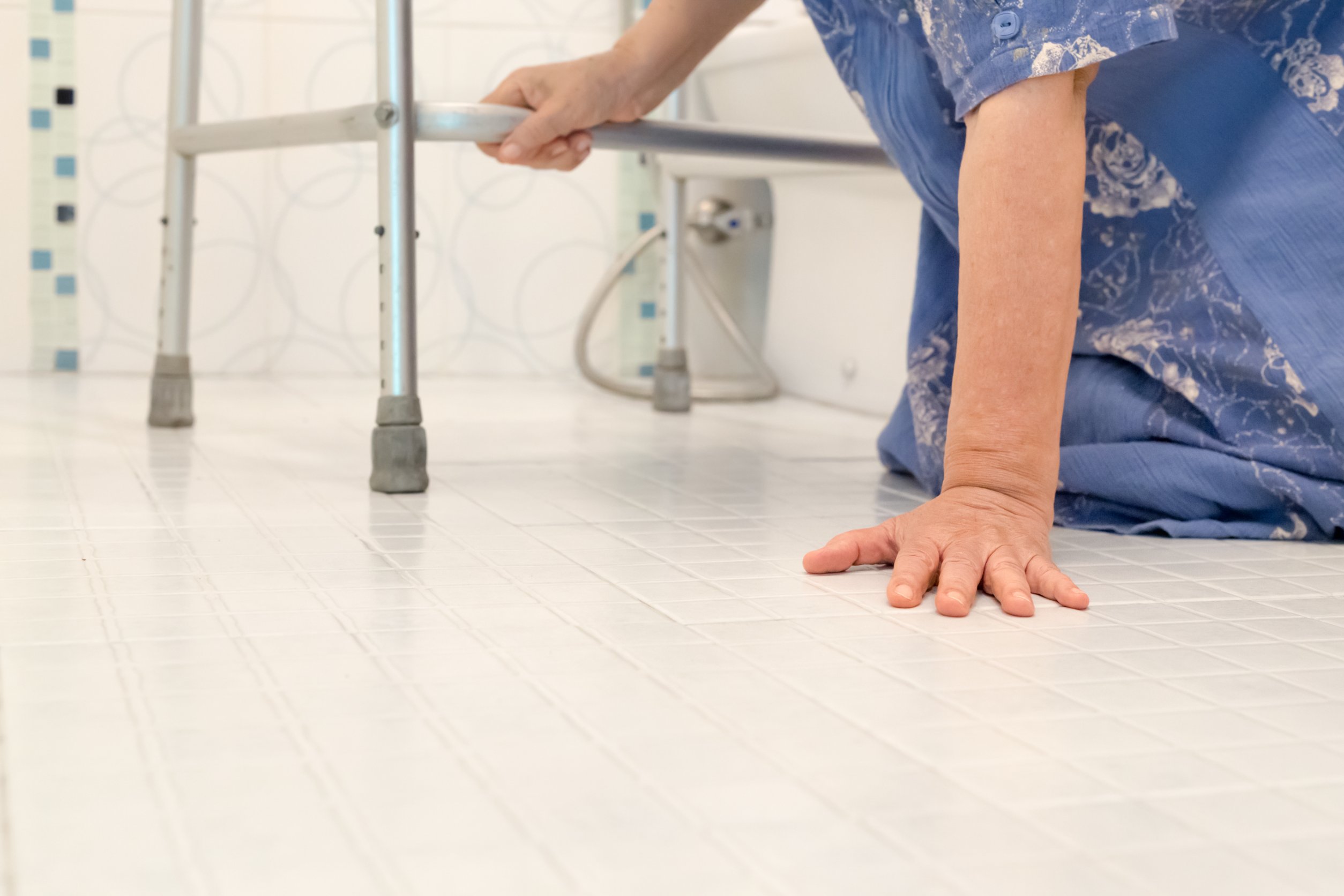
04 Aug How to Prevent Falls for Seniors
How to Prevent Falls for Seniors
As we age, our bodies change in many ways, affecting our balance and making us more likely to slip and fall. While taking steps to prevent falls throughout our lives, it is imperative to focus on safety as we age. Falls are the leading cause of injury and death among seniors, with one in every three seniors falling each year.
To prevent falls, it’s essential to pay attention to how your body feels, both when you’re active and sitting still. By creating a routine of checks throughout the day, you can learn to recognize the subtle signs that it’s time to stop and rest—for example, if your heart rate has sped up without an increase in exercise, or if you feel lightheaded, then it’s time to stop and sit down for five minutes before getting back on your feet again.
Fall prevention in seniors
As we age, our bodies change, becoming more susceptible to falls. But there are things we can do to prevent falls and stay safe. The first step is figuring out why seniors fall in the first place. For example, vision changes may lead people to trip over objects they cannot see on the ground or step off a curb they didn’t see coming up. One way to fix this is by installing a night light at the top of the stairs near the entranceway so that your body’s natural sense of balance will take over and keep you steady on your feet even if you have poor vision at night. And don’t forget about home safety inspections.
Causes of falls in seniors
As we age, our bodies change, becoming more susceptible to falls. Many factors can contribute to a fall, including muscle weakness, balance problems, vision issues, and medications. By understanding the causes of falls, we can take steps to prevent them. If you know your loved one is at risk for falls, it’s vital to assess the home and make any necessary changes before they happen.
Reducing the risk of falling
As we age, our risk of falling increases. But there are things we can do to reduce that risk. Stay active and exercise regularly to maintain strength and balance. Make your home safer by removing trip hazards and adding grab bars in the bathroom. Have your vision checked regularly and wear glasses or contacts if needed. Take medication as prescribed, and ask your doctor about possible side effects that could make you dizzy or drowsy.
- Get regular exercise. This helps improve your strength and balance, which can help prevent falls. With the warm weather we enjoy in Melbourne, FL, take regular walks to improve your strength. At The Residences our close proximity to area amenities allows ample opportunities for regular exercise. To learn more click here.
- Wear sensible shoes. Shoes that are too loose or have high heels can increase your risk of falling.
- Take care of your vision. Be sure to have regular eye exams and update your eyeglasses if needed.
- Make your home fall-proof. Install handrails in the bathroom and near the stairs. Put nonslip mats on the floor in wet bathroom or kitchen sink areas. Install safety gates at the top and bottom of staircases.
- Follow a healthy diet that includes calcium, vitamin D, magnesium supplements, and plenty of fluids like water.
- There are many therapy clinics located in the Melbourne, FL, area as well as Indian Harbour Beach, FL, including an outpatient therapy clinic at Zon Beachside that can improve your knowledge and overall strength to reduce falls. Our Zon Health program focuses on detection and prevention of falls https://zonbeachside.com/zon-360/zon-health.
- There are many resources available online including: https://www.mayoclinic.org/healthy-lifestyle/healthy-aging/in-depth/fall-prevention/art-20047358 and https://www.nia.nih.gov/health/prevent-falls-and-fractures.
Final Thoughts on How to Prevent Falls for Seniors
According to the National Osteoporosis Foundation (https://www.bonehealthandosteoporosis.org/), osteoporosis-related fractures occur every 3 minutes. As we age, our bones become more brittle and more likely to break. You can do many things to prevent falls and fractures, including taking calcium supplements, ensuring you’re getting enough vitamin D, which helps with bone health, participating in a resistance training program, and taking regular breaks from standing or sitting at work. You should also take care of your diet and avoid drinking too much alcohol, as these habits can contribute to an increased risk of bone problems like osteoporosis. Finally, you must get a bone density test if you have risk factors for developing this condition. All these factors are extremely important on How to Prevent Falls for Seniors.



